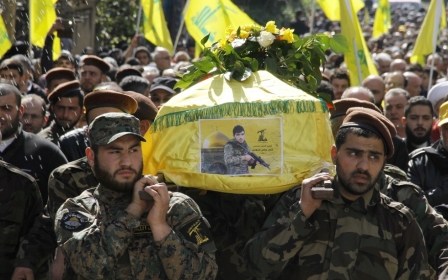ANALYSIS: A change of fortune for Assad government?

The increasing takeover of the Idlib province by the Syrian opposition has been labelled a major turning point in the current trajectory of Syria's bloody civil war.
Though President Bashar al-Assad and his government had appeared to be strengthening their position, there are now clear signs that the conflict could be about to turn against them, in part due to increased co-ordination on the part of Assad's enemies.
The change in fortune has also renewed rumours that Assad, around whom the government has spent over 10 years crafting a cult of personality, could be finding his position untenable.
On Monday, the Daily Telegraph cited inside sources as saying that Ali Mamlouk, the head of the country's National Security Bureau, had been removed following a coup plot.
Allegedly placed under house arrest, Mamlouk (a Sunni Muslim) had been concerned about the influence of Iran on Syrian society and the increasing number of Iranian officers advising the president.
"Most of the advisers at the presidential palace are now Iranian," the story quoted a 'source close to the palace' as saying.
"Mamlouk hated that Syria was giving her sovereignty up to Iran. He thought there needed to be a change.”
The report was met with scepticism in some quarters, particularly the claims that Mamlouk had been in touch with members of the Syrian opposition.
Joshua Landis, associate professor in the School of International and Area Studies at the University of Oklahoma, cited sources in Damascus who had seen Mamlouk – palpably not under arrest – walking the streets.
“Over the last 10 years one's heard nothing but stories about how regime principals are at daggers drawn with each other, the brother-in-law's trying to kill this one or they're all just about to have a palace coup,” Landis told Middle East Eye.
“And the trouble is this kind of stuff is constantly circulating and regime principals never deny it, because they’d spend their entire day making news announcements saying they're not killing each other if they were to do that.”
Carol Mahlouf, one of the Telegraph article's authors, later tweeted that the Syrian government were set to release a recording denying all that had been printed.
Landis also criticised suggestions that Mamlouk had been uncomfortable about Iranian influence.
“It doesn't make any sense - Iran is the only power that is coming to the succour of this regime, other than Russia,” he said. “Where else is Syria going to go get help other than Iran? And why would he get cold feet about Iranian help now?”
But the suggestion of an internal conflict and unease over the overwhelming presence of Iranian officials in the country is one that has gained traction in the last year.
The loss of the city of Jisr al-Shughur in the Idlib province to the Battle of Victory coalition (which includes al-Qaeda affiliate al-Nusra Front) was a significant blow to the Syrian government, occupying as it does an important strategic position between the major city of Hama and Latakia, a government stronghold and Assad's ancestral home.
While Assad's position as a figurehead remains publicly uncontested, there have been rumblings for some time now about the failure to secure a decisive victory against the rebels.
“We have seen Assad get rid of anybody who could potentially be a source of threat,” said Randa Slim, director of the Track II Dialogues initiative at The Middle East Institute.
“His position is definitely getting weaker, but it's not at the tipping point to enable the complete fall of the regime. I think there is still enough staying power for Assad with the support of their regional proxies,” she told MEE.
She said that the overwhelming goal of Iran and Hezbollah since the beginning of the Syrian conflict was to prevent the military defeat of the Assad government and that they were willing to take the reins to achieve this.
“Now, increasingly, Iran and Hezbollah are taking the lead in these decisions and sidelining more and more these heads of security agencies which were running the show,” she said.
But she also said that integral to this had been a desire to limit the power of people like Mamlouk, who they perceived as antagonistic to any future peace plans due to their original role in the crackdown on protestors during the 2011 anti-government demonstrations.
“They have been all along advising Assad to curtail their power and clip their wings. That has been Hezbollah's advice to Assad - these security agencies have been a source of trouble as far as Syrian citizens are concerned, have been a source of trouble as far as corruption is concerned; there has been a lot of in-fighting between them where control of resources are concerned,” she said.
“You need to clean your act and part of Assad cleaning his act is to curtail their power and get rid of them.”
New MEE newsletter: Jerusalem Dispatch
Sign up to get the latest insights and analysis on Israel-Palestine, alongside Turkey Unpacked and other MEE newsletters
Middle East Eye delivers independent and unrivalled coverage and analysis of the Middle East, North Africa and beyond. To learn more about republishing this content and the associated fees, please fill out this form. More about MEE can be found here.




